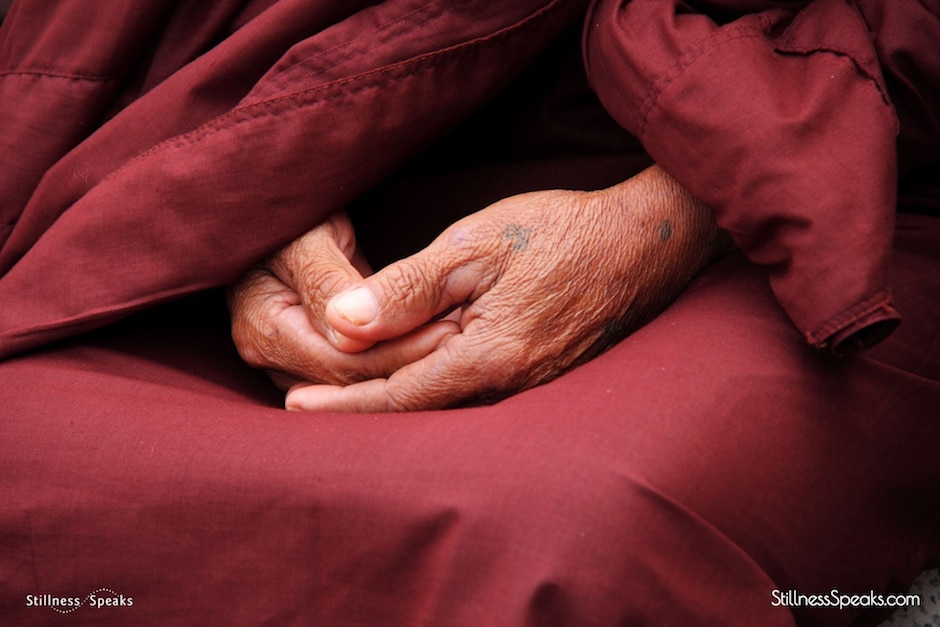“… when it comes to the basic skill of relaxing into a quieter state of mind, effort generally turns out to be counter-productive …” ~ Peter Russell
We continue this series on Peter Russell’s book “Seeds of Awakening.” It is one of the clearest distillation of “perennial wisdom {without} the trappings of time and culture” that is very readable, engaging, deeply insightful and a treasure trove of very relatable “wisdom gems.”
In this 3rd post if the series, Peter unpacks the statement that Meditation “… should be effortless …” and he shares his thoughts on how to be effortless and the opportunities that lie within.
Thanks to Peter’s generosity we are able to offer this chapter as a FREE downloadable PDF.
Seeds of Awakening is listed in our book library and can be purchased by clicking here. All italicized text below is directly excerpted from Peter’s book with his permission.
Here’s Part 1: Rediscovering The Timeless Wisdom. and Part 2: Kindness.
Can Meditation be Effortless?
You may be surprised to hear that meditation should be effortless, that no striving or concentration is needed. I know I was. When I first became interested in meditation, I was repeatedly told that it took great mental discipline and many years of practice. Indian teachers had likened the mind to a wagonload of restless monkeys that needed to be tied down and kept quiet.
And my experience appeared to confirm it. My mind was full of thoughts, and try as I may, I could not keep them at bay. Like many others, I naturally assumed that I was not trying hard enough; I needed greater mental discipline, not less.
Then I chanced upon Transcendental Meditation. Its teacher, the Maharishi of Beatles fame, challenged the whole notion of trying to control the mind. The monkeys, he pointed out, were wanting something–more bananas perhaps. Give them what they want and they will settle down of their own accord. So with the mind; it is restless because we are seeking something. And what is it we are seeking? We want to feel better–to be happier, more at ease, content. He argued that if we give the mind a taste of the inner contentment it is looking for, it will be attracted to it and begin to settle down of its own accord.
This made more sense to me than what I’d come across so far, so I learned his practice. And it worked. I found my mind becoming quiet without any effort. Indeed, as soon as I inadvertently started trying to control the process, in the hope that I could somehow help my meditation along, it did not work so well.
Now I am not suggesting that this applies to every type of meditation. Techniques designed to cultivate particular mental skills or states of mind, may well involve a degree of concentration or mental discipline. But when it comes to the basic skill of relaxing into a quieter state of mind, effort generally turns out to be counter-productive.
Instead, when you realize you have been caught in a thought, accept the fact. Don’t judge or blame yourself. It happens—even to the most experienced meditators.
Instead of following the thought, as you might in normal life, gently shift your attention back to your experience in the present moment. And just notice what is there. It may be sounds around you, sensations in the body, the breath, some feeling, a sense of ease or peacefulness. It doesn’t matter.
Let the attention rest in the experience. Don’t try to concentrate or hold it there. Ah yes, you will be sure to wander off again. But the practice is not learning how to stay present, but learning how to return to the present. If you wander off a hundred times, that is a hundred opportunities to practice gently returning your attention to the present.
Even then, trying and effort can arise in subtle ways. Maybe if I just added this or focused on that, it would be easier. Some of it is so subtle that we don’t even notice we are doing it. A slight attempt to control the mind, a faint resistance to an experience, even wanting to have a good meditation, they all stand in the way of our letting go completely.
But when we do, we discover that there really is nowhere to get to, and nothing to do. It was the doing that was holding us back.
_ _ _
Again, here’s Part 1: Rediscovering The Timeless Wisdom. and Part 2: Kindness.
Peter covers topics like Effortless Meditation, Forgiveness, Returning to Natural Mind, Not Resisting Resistance … all of which are/contain “seeds” that can blossom into awakening … so stay tuned for more of these seeds in the coming weeks …
Above excerpt (all italicized text) is from Peter’s latest book Seeds of Awakening and is published here with his permission.









Meditation is the ”Great Health” of the Mind. When Mind is healthy it disappears.
Q: ”Please pacify my mind” A: ”Show it to me and I will pacify it”
Q: ”I am looking for my mind but I can not find it.” A: ”There, it is pacified”
It would be completely redundant to name the protagonist and the legend, for it is surely plane to the readers that offer their ears and hearts to ”Stillness Speaks”. In the mind of your devotee from afar, Effortless meditation is the practice of remembering one’s ”Great Health” of Mind, the ”gentle return” to one’s ”true face”.
Dusan,
Well said!
Thanks for dropping by and for being a “devotee from afar” 🙂
Hopefully, our content continues to offer helpful insights for your self-discovery journey.
Namaste’
Sanjiv